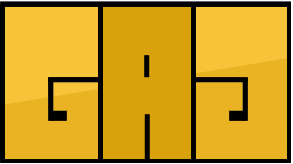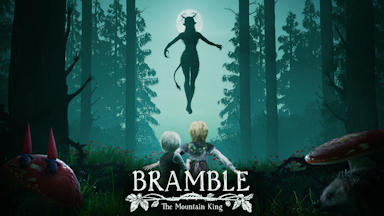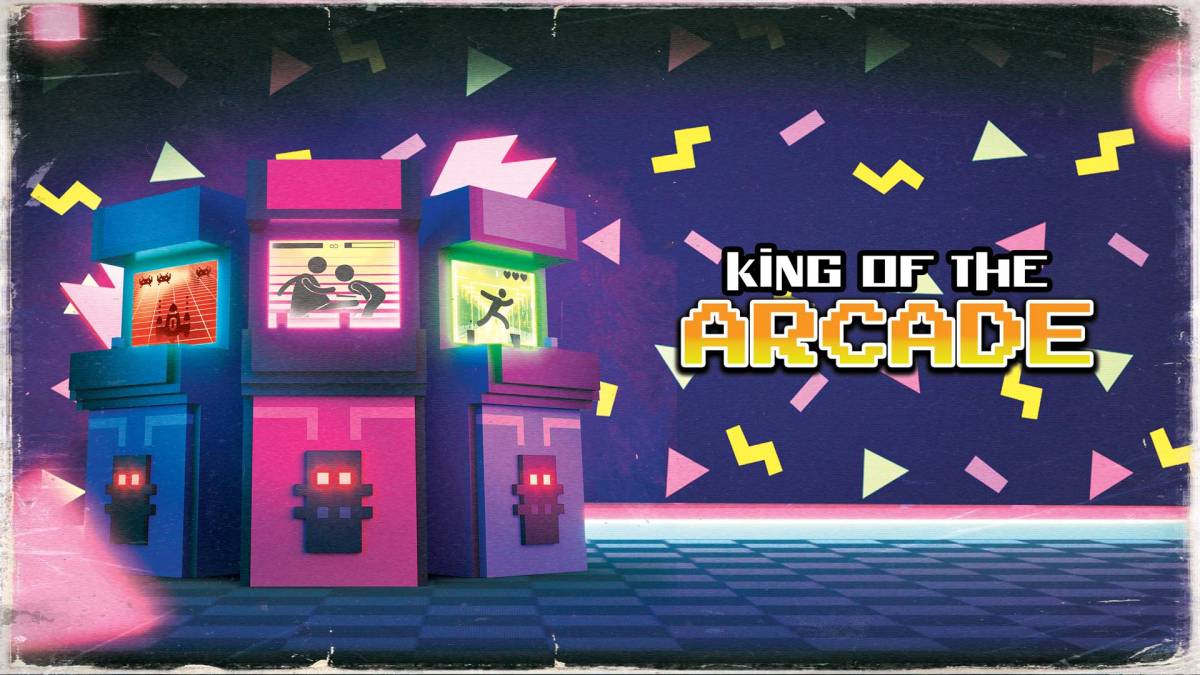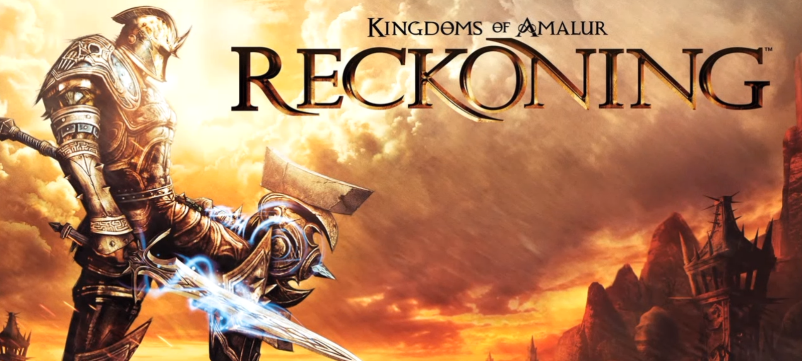
Platforms: Playstation 3, Windows, and Xbox 360 (reviewed)
What do you get when you combine an RPG with combat similar to God of War, the quest structures of World of Warcraft, and the art style of Fable and World of Warcraft? Why, you end up with Kingdoms of Amalur: Reckoning! Despite the seeming simplicity of that description, there’s actually more to the game than that leads on to. It sounds like a fairly simple premise, but when you think of combining these aspects into one package, it almost sounds like a recipe for disaster if the developer isn’t up to the task of making these work together. Almost surprisingly, Big Huge Games and 38 Studios seemed more than able to make these elements work together very well, if not perfectly.
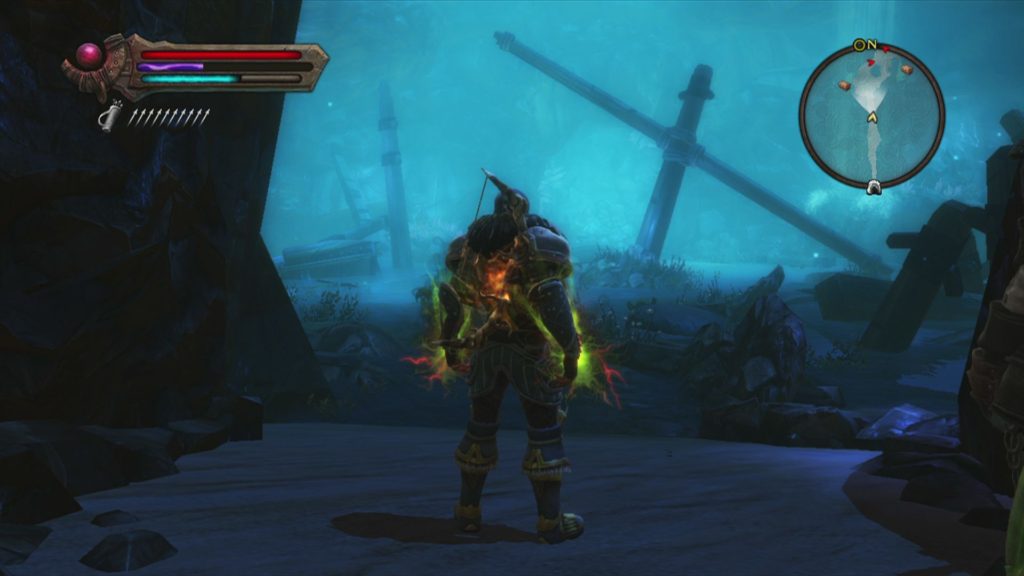
The story finds your character dead. A corpse on a wheelbarrow being tossed aside after a seemingly failed attempt at bringing you back from the realm of the not breathing. As the gnomes (puzzlingly named despite the fact they would be considered dwarves in most other fantasy settings) push your corpse along, you’re given the chance to customize your character’s race (selecting from four races), appearance, bonuses, and name. From there, after landing on a pile of corpses that also failed to be brought back to life, you find yourself awakening. After getting your bearings and heading out to figure out what is going on, you’re given a fairly straightforward tutorial and caught up to speed on the happenings of the world and the war it finds itself in.
Where Reckoning attempts to differentiate itself from other games of its ilk is in the oddity that your character turns out to be. You turn out to be the first success of the Well of Souls, a device built by the gnomes in an attempt to conquer death. Your first quest once outside of the Well of Souls has you meeting Agarth, a Fateweaver. A Fateweaver is someone who can read the threads of fate, essentially making them a slightly glorified fortune teller. Agarth, unable to discern your fate, realizes that you are free of Fate’s path and able to alter it, and subsequently, everyone else’s, by your actions.
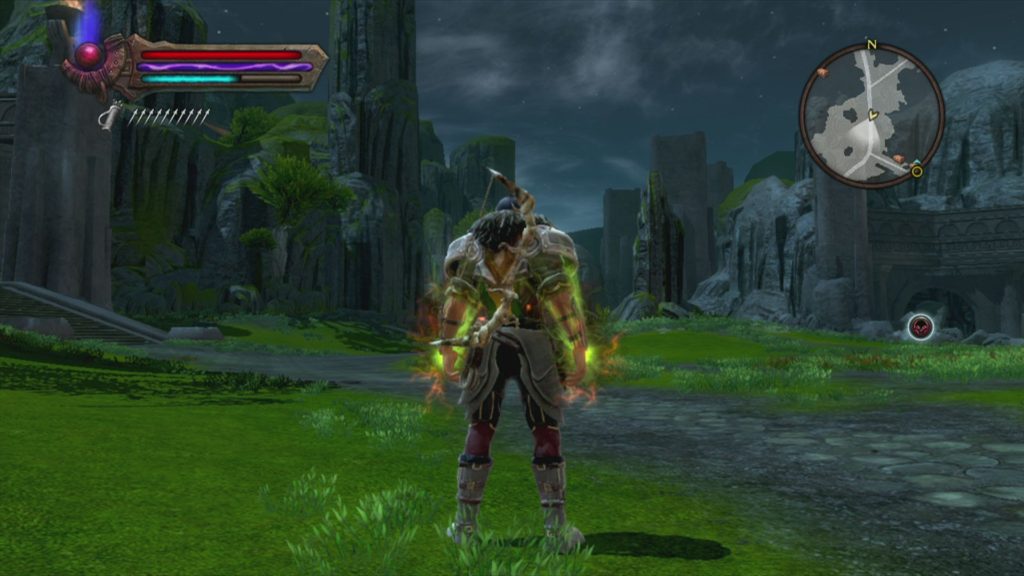
You’re let loose upon the world to follow the main quest or go off and find something else to occupy your time with. And is there a lot of stuff that allows you to do just that with. In line with other games that promise 100 or more hours of playtime, you can lose yourself in this game quite easily. If you’re interested in the lore of the world, there are books to read and sidequests to complete that help flesh out the world. If that’s not your thing, you can set out with no direction set and harvest components for crafting equipment and alchemy ingredients. With most, if not all, of the best equipment available only through crafting, this can really set you way ahead of the foes you face as you explore. Plus the benefit of using alchemy to conjure up your own potions can save you a considerable amount of money in the early stages of the game. You can take sidequests simply for padding your levels, inventory, and coffers because, as near as I can tell, there are hundreds of them. While some are considerably more trivial than others, I kept taking on quest upon quest despite how irrelevant they seemed. The reason I found myself doing that was simple: the combat.
The combat in this game really does steal the show. While it’s easy to make the comparison to God of War (guilty of that personally just a few paragraphs up), it’s not quite at that level. It does come remarkably close to those levels despite this being an RPG, a genre not known for fast-paced, action-orientated combat. The potential amount of variety in the combat for those that dig deep into it is quite impressive. There are nine different weapon varieties and you have the ability to have any combination of the two equipped at any given moment. Want to start out fast and finish heavy? Start your combo with daggers and finish with a giant hammer at the end. Thinking that going the route of a spellsword sound fun? Longsword followed by an elemental staff can be devastating. As if the weapon varieties aren’t enough, there’s also magic and special abilities to be factored in. You can learn a large amount of them and have up to four of them equipped to use at a moment’s notice. The beauty of it all is that you can swap them out very quickly and easily to best fit the situation you find yourself in. You can also use the magic and special abilities in the combos to create some seriously damaging attacks. Factor in all these options and there’s going to be at least one style for everyone.
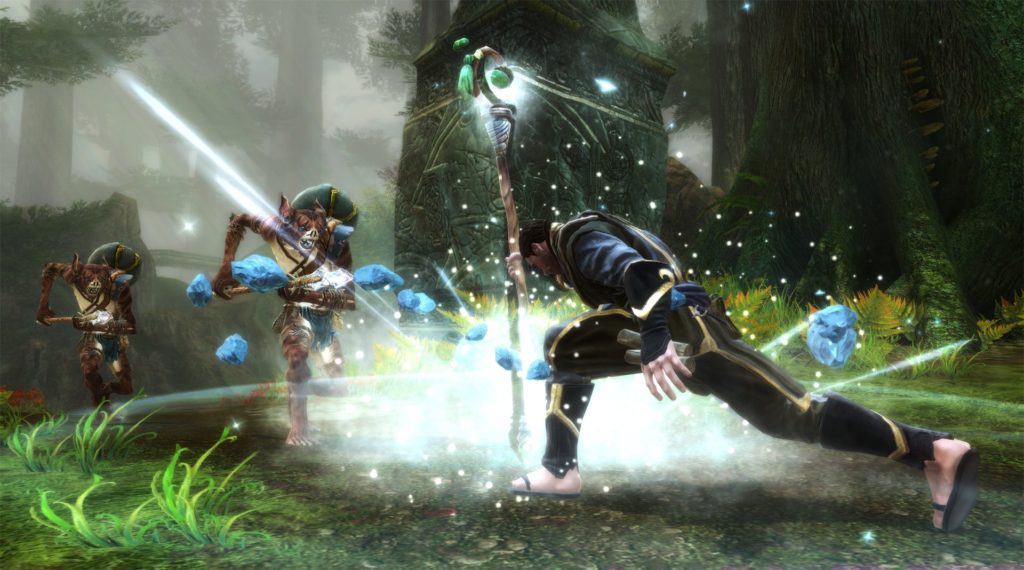
In my character I used for my review playthrough, I used a build that could dish out and take huge amounts of physical damage but is a bit slower. In my “for fun” playthrough, I’m going with a build that is much more light on their feet and also proficient in magic. I’ve found both very rewarding and still have yet to tire of the combat. This can also be attributed to the way the game handles class building. You’re given the choice of some Destiny cards that give you perks that are pertinent to your play style. The more points you put into the three attributes, Might, Finesse, and Sorcery, the more Destiny cards open up. The game almost encourages you to invest in multiple branches of these attributes, as the more points you invest, the more hybrid cards open to you. If you’re not happy with your build, you can always respec your character (for a reasonable monetary cost) and try something new entirely.
Another unique aspect of the combat comes right from the game’s name – reckoning mode. In this mode, you slow down time, do more damage, and have the potential to earn an experience point multiplier by mashing a button that comes as an onscreen prompt once you end the mode. Sounds simple enough, but if you fail to end the mode on your own before the meter runs out, all of the enemies that you managed to down while in reckoning mode will stand back up, ready to enter the fray once again. You can use the mode as a quick way to knock any particular enemy or group of enemies’ health down, but unless you finish off at least one, you lose the potential to earn any experience bonus, negating the usefulness of it. You fill up the reckoning meter with fate points you earn while in combat. Giving you one more reason to toy around with different attack variations, changing up your attack chains with different moves will net you more points, filling your meter up more quickly.
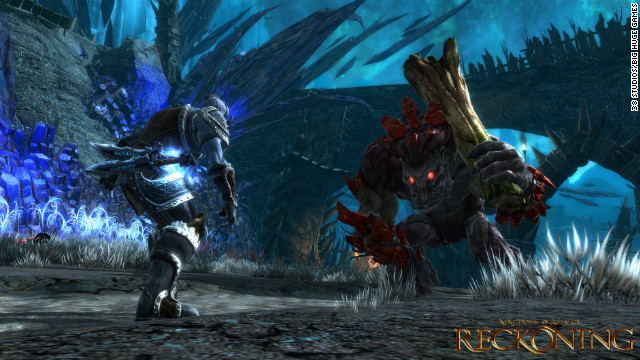
Where the game stumbles a bit is the actual narrative and world. The world is quite fleshed out in terms of the lore. There are a lot of things to take in and learn if you’re drawn into it, but you have to go looking for it as the game’s main narrative only gives you the Cliff Notes version of it. If there’s a glaring weak link in the main narrative, it’s how linear it is. With no decision having any real consequence on how the whole thing turns out, the fact that you, and only you, exist outside of Fate’s influence seems like a largely missed opportunity.
Almost disappointingly, almost all of the races in the world are simply renamed variations on the races you find in other fantasy settings. While this doesn’t detract from the amount of time put into the crafting of the world, it can take you out of the experience a bit if you’re constantly thinking “dwarf” every time someone mentions a “gnome.” I understand the reasoning in that decision, but if you want to differentiate yourself from the rest of the fantasy worlds out there, renaming existing races isn’t the way to go about it.
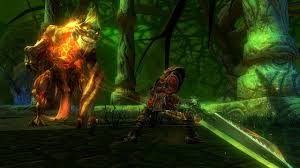
The presentation in the game, getting back on a more positive note, is well done. While you might see traces of influence from Fable and World of Warcraft in Reckoning, the vibrancy of the world really shines through and is a pleasure to look at. Given how much time you could potentially be spending in the world, a pretty face to look at always helps.
While there are some very pretty visuals, the music falls into the same category as Skyrim’s did for me – well done but nothing standing out in particular. Even now, I honestly can’t remember any particular music from the game, but I also never found myself offended at the offerings. The voice acting is also serviceable. While nothing truly bad rears up, most of the characters have that European accent that you just can’t pin down.
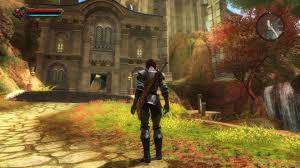
Graphics – Lovely to look at with some very nice backdrops. The occasional hiccups (pop-in and tearing) occurs, but even during combat with multiple enemies and effects going, the frame rate rarely hits a snag.
Sound – Music and voice acting all get the job done. The sound effects are a bit more of a stand out as they can add some more weight to the excellent combat.
Gameplay – The structuring of many of the sidequests can be boiled down to fetch quests. Combat is something I can’t gush about enough. The inventory is easy to use and how new equipment affects your stats is simple and easy to understand. Crafting and alchemy are also straightforward.
Story – The main story is very straightforward and a bit of a downer. The little bits of the world you can pick up in sidequests, while not as in-depth as Skyrim, fleshes out what the main quest only gives you a basic understanding of.
Replay Value – Once the game ends, there’s plenty of sidequests to keep you going. While starting from scratch is always an option, doing a respec on your character would probably be a more viable option to attempting to start all over again as none of your decisions have any lasting impact on the outcome of the game.
Overall Length – While the main narrative can be completed fairly quickly (around 25 hours for me with a few dozen sidequests completed as well), the nearly insane amount of sidequests to complete and loot to find can add another 150 hours quite easily. If you don’t mind the simple structure, they’ll keep you busy for easily 200 hours.

If you’re looking for something to play that you can sink well over 100 hours into that isn’t Skyrim, you could do much worse than Reckoning. The combat keeps the game fresh and the number of things to do in the game can keep you invested for a long time. If the Amalur series takes another stab at a single-player game, I’d like to see less generic sidequests and decision making that has more impact on the game’s narrative. For the first entry in a series by a new studio, this is way beyond an excellent freshman offering. Reckoning can stand head-to-head with the big boys of the RPG world and is worth the price of admission.
